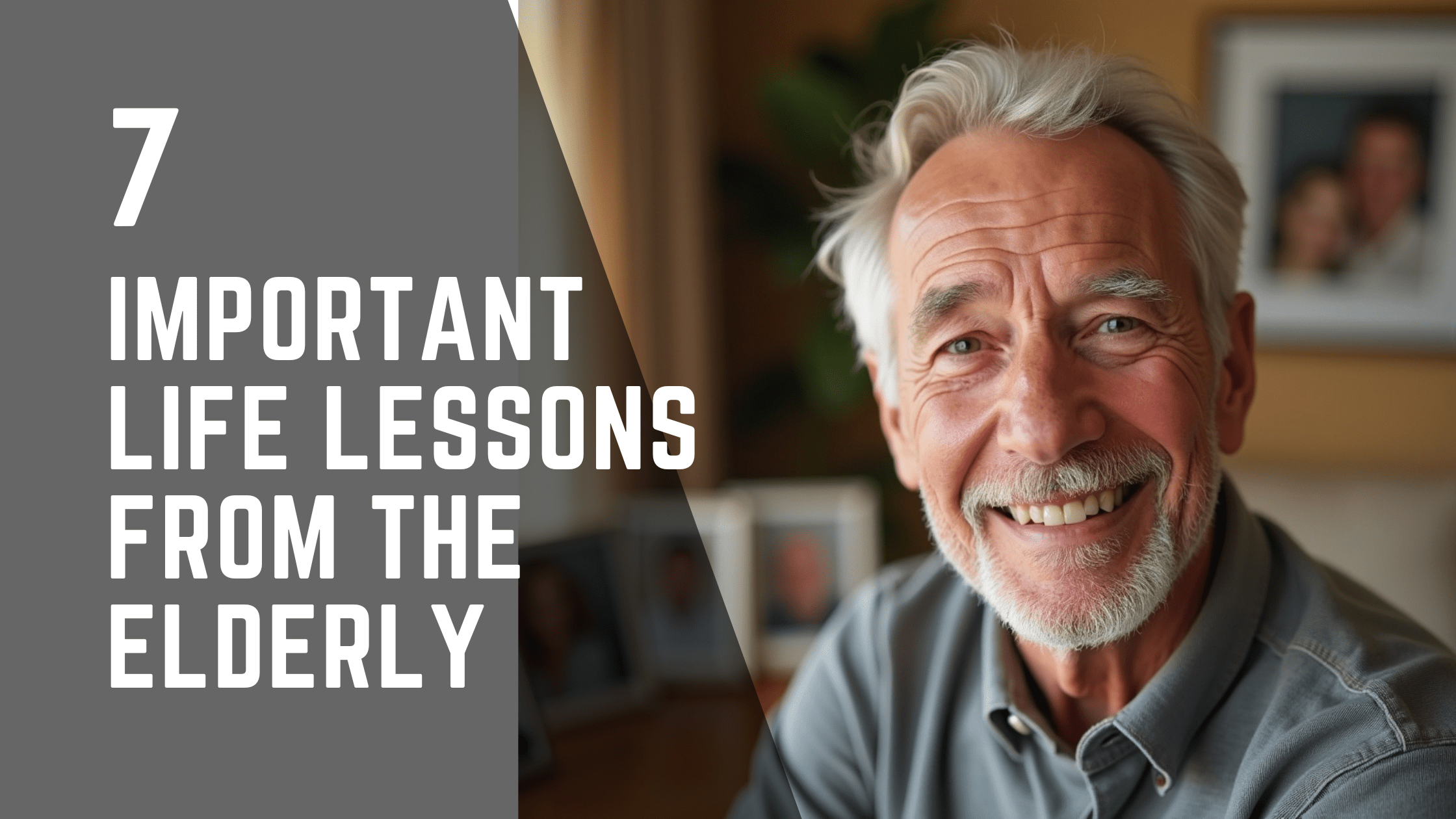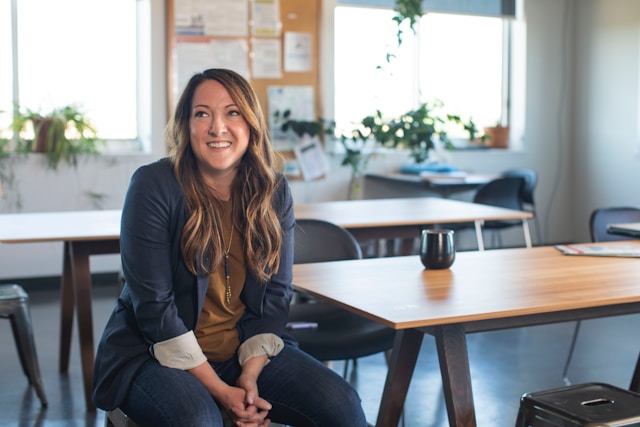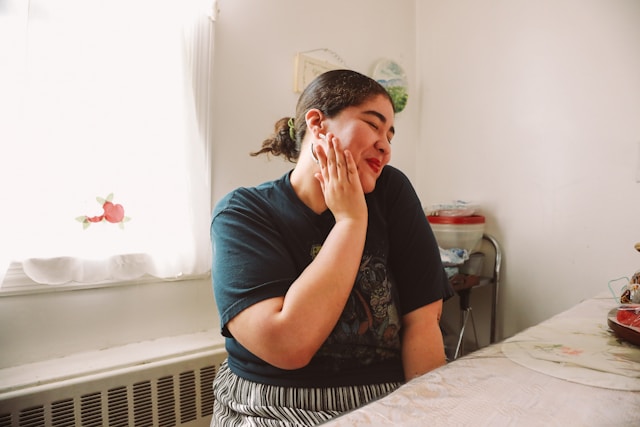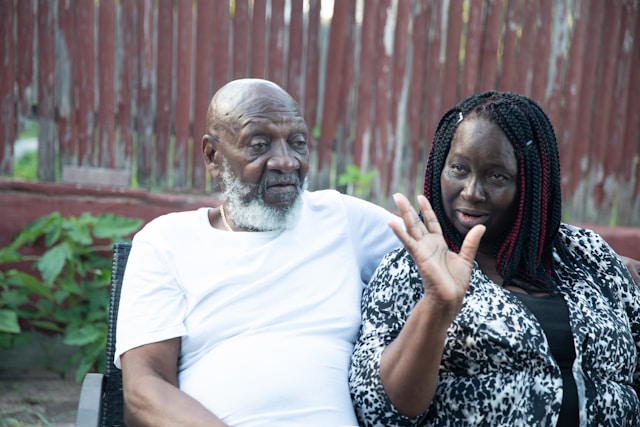Physical Address
304 North Cardinal St.
Dorchester Center, MA 02124
Physical Address
304 North Cardinal St.
Dorchester Center, MA 02124

Everyone keeps asking me what my secret to healthy and happy living is. How am I happier at 73 than I was at 30? How am I more adventurous in my seventies than I was in my twenties? How am I living my best life when society says I should be slowing down?
Here’s the truth about the most important life lessons from seniors, followed by tips for a good life from a senior, dished out to you as part of my essential life lessons from the elderly.
My seventies didn’t become the best years by accident. They became the best years because I finally learned Important Life Lessons From The Elderly that took me seven decades to understand. And what I’m about to share might completely change how you think about aging.
If you’ve ever worried about getting older, if you’ve ever felt like your best days are behind you, or if you’ve bought into the myth that life gets worse with age, this video is going to mess with everything you believe.
I’m going to reveal the counterintuitive life lessons that transformed my golden years into something more like platinum years. And trust me when I say that, the research behind why older adults can actually be happier and more fulfilled than younger ones will surprise you.
You know what the biggest lie I believed for most of my It was that aging meant decline. That getting older meant getting sadder, lonelier, more limited.
I spent my forties dreading my fifties. I spent my fifties mourning my thirties. I spent my sixties convinced my best days were over.
What a waste of perfectly good decades.
Here’s what changed everything: Dr. Laura Carstensen’s groundbreaking Stanford Study of Longevity followed thousands of people across multiple decades. Her findings? People actually tend to get happier as they age, with the highest life satisfaction scores occurring in the 70s and beyond.
The moment I learned this, I realized I’d been living someone else’s story about what my life should look like. That single realization changed everything about my earlier misplaced thoughts and led me into the following

It’s now time to talk about the various life lessons that made my 70s the best years ever.
Let me begin with,
This was the first revelation that blew my mind.
In my twenties and thirties, I had endless energy but no focus. I’d bounce from project to project, relationship to relationship, always searching for something I couldn’t quite name. I was like a fire hose – lots of pressure, but spraying everywhere.
But fast forward to my seventies? I’ve got laser focus. I know exactly what matters and what doesn’t. My energy isn’t scattered anymore – it’s concentrated on things that actually bring joy and meaning.
Dr. Reed Larson’s research on emotional selectivity theory shows that as people age, they become more selective about their experiences and relationships. This isn’t a limitation – it’s optimization. We get better at filtering out the noise and focusing on the signal.
I learnt that less quantity means more quality. That’s the trade I’d make again in a heartbeat. That’s one of my life lessons from the elderly.
Here’s something liberating that happened in my seventies: I stopped caring about impressing people.
Not in a mean way, though. And it’s equally not in a “get off my lawn” way. I just realized that spending energy on other people’s opinions was like pouring water into a bucket with no bottom.
In my fifties, I was still trying to climb corporate ladders, still competing with neighbors, still worried about what people thought of my choices. Exhausting.
But you know what happens when you stop performing for an audience? You start living for yourself. You start making decisions based on what brings you peace instead of what brings you praise.
The applause stops mattering when you finally learn to applaud yourself. That takes us to the next life lessons from the elderly, which is…
This might be controversial, but I’m going to say it anyway: most regret is a choice.
I spent years regretting the business I didn’t start, the places I didn’t visit, the risks I didn’t take. But somewhere in my late sixties, I had an epiphany: every decision I made led me to exactly where I needed to be.
That “failed” relationship taught me about boundaries. That “missed” opportunity cleared the path for a better one. That “wrong” career move gave me skills I’d use later in unexpected ways.
Research from the University of California shows that older adults who practice acceptance of their past decisions show significantly lower levels of anxiety and depression, plus better cognitive function.

I stopped viewing my past as a series of mistakes and started seeing it as a curriculum. Every experience was a lesson. Every setback was set up for a comeback. That leads us to one of my best life lessons from the elderly, and it’s
Do you want to know where I got rebellious about the whole aging narrative?
Then here it is.
Society teaches us that getting older means losing things – losing strength, losing memory, losing independence. But what if that’s backwards? What if aging is actually about gaining things?
I gained patience I never had in my youth. I gained perspective that only comes from surviving multiple decades. I gained the ability to appreciate simple pleasures that I used to overlook.
Yes, my knees creak sometimes. Yes, I need reading glasses. But you know what else? I sleep better because I worry less. I enjoy food more because I’ve learned to eat mindfully. I appreciate sunsets because I understand they’re finite.
The losses are real, but so are the gains. And nobody often talks about the gains.
This is one of my best life lessons for the elderly
You see, in my twenties, I measured friendship by quantity. How many people were at my birthday party? How big is my social circle? How many contacts did I have?
However, in my seventies, I measure friendship by depth. I’d rather have three conversations that matter than thirty conversations that don’t.
People Also Read: Powerful Ways To Let Go Of Past Mistakes At 75
The Harvard Study of Adult Development – the longest-running study on happiness ever conducted – found that the quality of our relationships is the strongest predictor of life satisfaction as we age. Not the quantity. The quality.
I’ve got fewer friends now, but the ones I have really know me. They’ve seen me at my worst and still choose to stick around. They call when I’m quiet for too long. They remember what matters to me.
A smaller circle, but a stronger foundation. That’s a trade worth making.
Before getting into lesson number six, remember, the people who transform their lives don’t wait for motivation—they create systems. By subscribing, you’re choosing consistency. Let this channel be your weekly ally in building the life you want.
This one’s going to sound morbid, but bear with me.
Being aware that I have fewer years ahead than behind has made me more present than I’ve ever been. When you know the movie has a limited runtime, you pay closer attention to each scene.
I notice things now that I completely missed in my younger years. The way morning light hits my coffee cup. The sound my dog makes when she’s dreaming. The feeling of a good book in my hands.
Research published in the Journal of Gerontology shows that older adults demonstrate what psychologists call “temporal awareness” – a heightened appreciation for the present moment that comes from understanding time’s finite nature.
Scarcity doesn’t just create value in economics. It creates presence in life.
Do you still want to know the most radical thing about being in my seventies? I finally permitted myself to be exactly who I am.
Not who my parents wanted me to be. Not who my spouse expected. Not who society deemed appropriate for my age. Just… me.
I wear what I want. I say what I think. I pursue interests that fascinate me, even if they seem “too young” or “too old” or “too weird” for a 73-year-old.
I started learning photography at 71? Absolutely. I also took a solo trip to Thailand at 72, and you bet. I decided to write a book about my unconventional career path. Why not?
I want you to know this: Permission is something you give yourself, not something you wait for others to grant.
We’re just scratching the surface here. That’s why I urge you to continue reading to understand where the science gets really fascinating.
Dr. Dilip Jeste’s research on “successful aging” found that older adults who thrive share certain characteristics: they’ve developed better emotional regulation, they practice gratitude more consistently, and they’ve learned to focus on meaningful activities rather than busy work.

The aging brain actually gets better at certain things, including getting better seeing the big picture, managing emotions, and finding meaning in experiences.
Your prefrontal cortex, which is the part responsible for wisdom and judgment, continues developing well into your seventies and beyond. It means you’re literally getting wiser with age.
How about that?
So, while your processing speed might slow down, your processing depth gets richer.
This isn’t new psychology, by the way. Ancient cultures understood something we’ve forgotten about the value of elders.
In many traditions, the later decades of life are seen as the most spiritually rich. The Hindu concept of the final life stage, sannyasa, is about the renunciation of material pursuits in favor of spiritual growth and sharing wisdom.
Native American cultures revered elders as the keepers of wisdom, the ones who’d lived long enough to understand life’s deeper patterns
Maybe the ancients knew something we’ve lost in our youth-obsessed culture.
Here’s the thing about knowing you’re closer to the end: it makes you less afraid of living.
When you’re young, you think you have forever. Paradoxically, this makes you more anxious about making mistakes, more paralyzed by choices, and more worried about wasting time.
On the other hand, when you know time is limited, you become braver. You take the risks that matter. You have the conversations that count. You stop saving the good china for special occasions and start treating ordinary Tuesday as special enough.
Mortality isn’t the enemy of living fully. It’s the motivator.
What of compound interest? It taught me that every decade I’ve lived has built on the previous ones. My forties gave me resilience, my fifties gave me perspective, while my sixties gave me acceptance.
And in my seventies, they’re giving me the gift of integration. All those experiences, all those lessons, all those mistakes and victories are finally coming together into something like wisdom.

It’s like compound interest, but for life experience. Each year doesn’t just add to the total – it multiplies the value of everything that came before.
You don’t just get older. You get richer in ways that have nothing to do with money.
At this juncture, I want to tell you what I’ve learned about happiness in my seventies: it’s not about adding more to your life. It’s it involves subtracting what doesn’t serve you.
I let go of grudges I’d carried for decades. I let go of dreams that were really other people’s expectations. I let go of the need to be right in every argument.
Each thing I released made room for something better. Less resentment meant more peace. Fewer obligations meant more freedom. Less proving meant more being.
Sometimes the secret to having more is wanting less.
Do you know what’s hilarious about all this? I’m more curious now than I was at 30.
Maybe it’s because I’ve finally accepted that I don’t know everything. Maybe it’s because I’ve realized how much I still want to learn. Maybe it’s because I’ve discovered that being a beginner at anything is actually fun when you’re not worried about looking foolish.

I’m learning Spanish through an app. I’m taking cooking classes. I’m trying to understand cryptocurrency (still working on that one). I ask questions that would’ve embarrassed me decades ago.
Age doesn’t have to mean closing your mind. It can mean opening it wider.
Here’s something beautiful I’ve noticed – when you start thriving in your later years, you permit other people to do the same.
My 68-year-old neighbor started painting after watching me take up photography. My 75-year-old friend, Andrew, joined a hiking group after hearing about my Thailand adventure. My 80-year-old book club buddy started a blog about vintage recipes. Can you imagine the impact my decisions have had on others around me? Fascinating life lessons from the elderly, you’d say.
When you refuse to act your age, you help others question what “acting your age” even means.
Want to know the real secret to making your seventies (or any decade) your best years yet?
Stop waiting for permission, stop believing the stories about decline, and stop thinking your best days are behind you.
Start treating each day like the gift it is. Start pursuing what actually interests you instead of what you think you should be interested in. And start saying yes to adventures and no to obligations that drain your soul.
Your seventies – or your forties, or fifties, or sixties – don’t have to be about slowing down. They can be about speeding up in the right direction.
Look, I’m not saying being in your seventies is all sunshine and rainbows. Bodies change, the loss of someone dear to you is real, and challenges exist that didn’t exist in younger years.
But I am saying this: if someone had told me at 30 that my seventies would be my happiest, most adventurous, most fulfilling decade yet, I would’ve thought they were delusional.
It all turns out that the only delusional thing was believing that aging had to mean decline.
Every decade has its gifts if you’re willing to unwrap them. Your best years aren’t behind you, not at all: they’re the ones where you finally understand what “best” actually means.
And trust me, that understanding is worth waiting seventy-something years for.
The only question left is: what are you going to do with this information? Because time’s not slowing down for any of us, and you’ve got a life to live. Thanks for reading my life lessons from the elderly at 70.